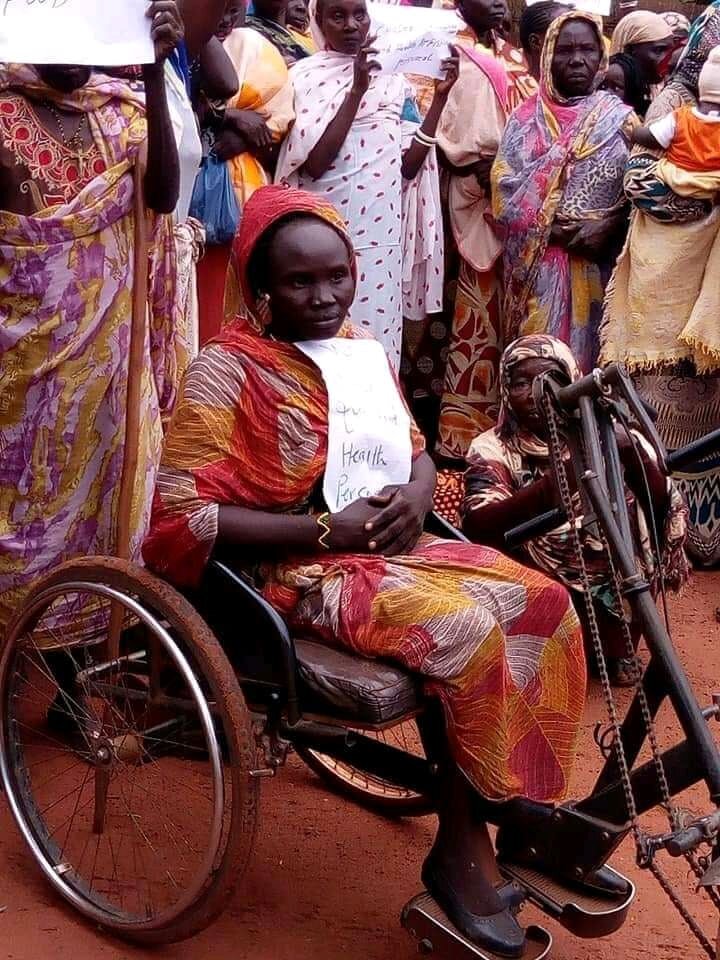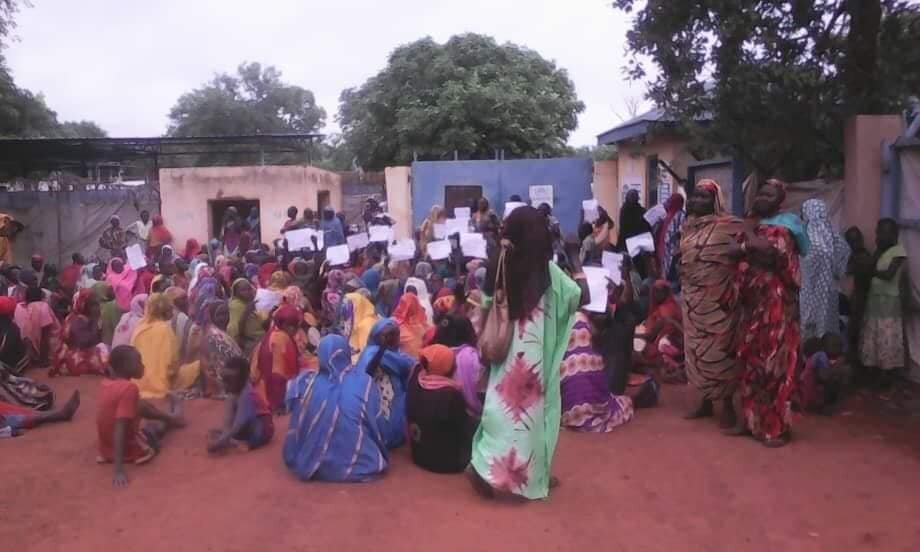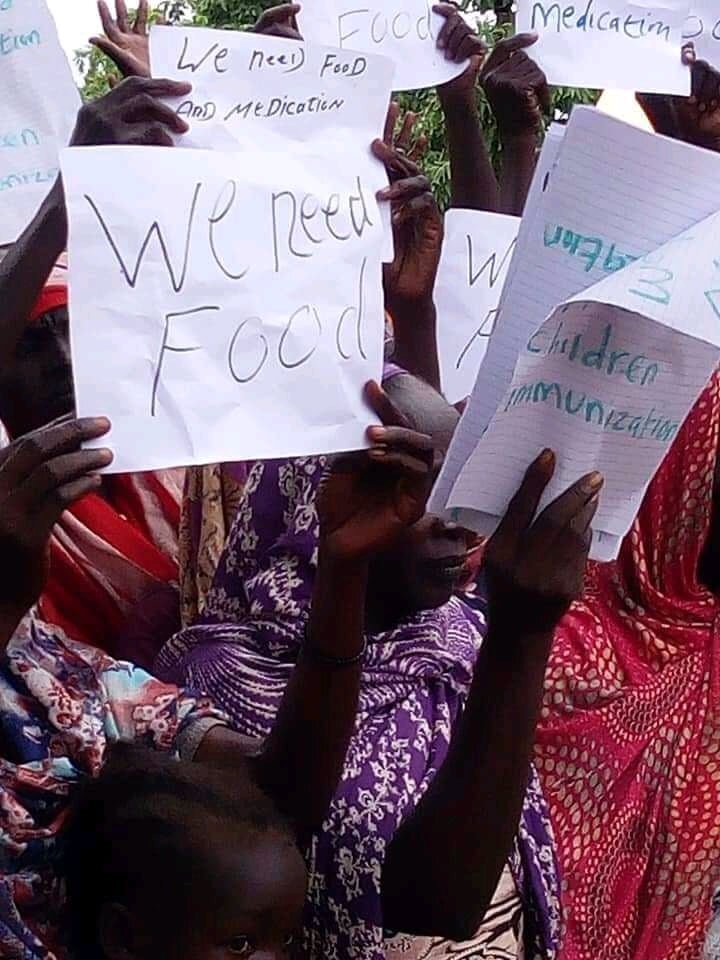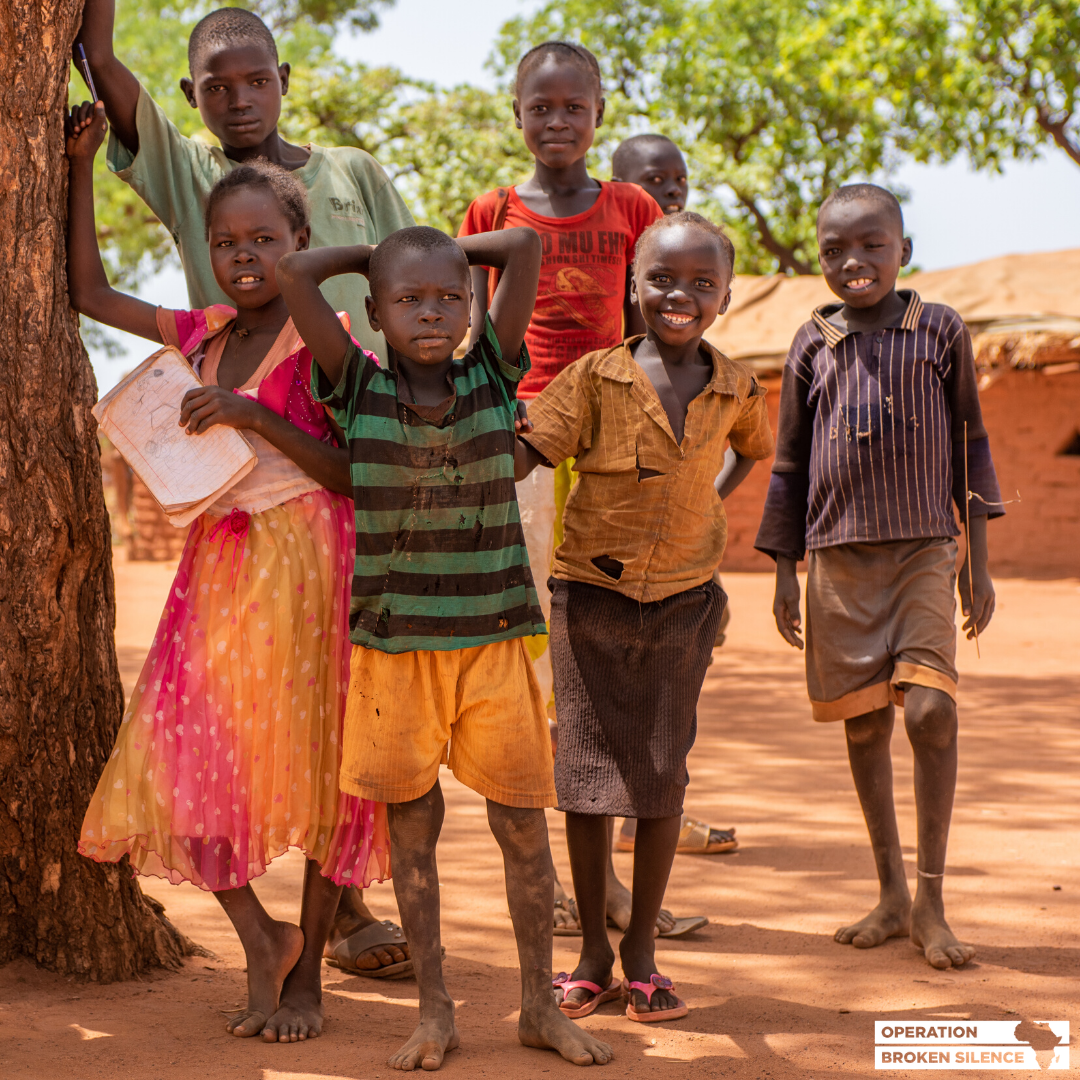The UN is trying to close Yida Refugee Camp. Again.
In the midst of a raging global pandemic, the United Nations (UN) has decided that it is suddenly an urgent matter to close a critical Sudanese refugee camp.
Yida Refugee Camp sits just within South Sudan’s northern border. The camp is home to tens of thousands of refugees who have fled the Sudanese government’s genocidal war in the Nuba Mountains of Sudan since 2011. A fragile ceasefire has been in place in the Nuba Mountains since 2016; however, the situation is far from stable.
Yesterday, several of our contacts in Yida informed us that tensions in the camp are skyrocketing. The United Nations Refugee Agency (UNHCR) has announced it is suspending humanitarian aid to the camp because the existence of Yida is “illegal.” One of the messages we received from a Yida resident who requested to remain anonymous:
Hundreds of Nuba refugees in Yida are protesting UNHCR. They demand that the UN provide food, tents, and medicine, especially vaccines for our children. UNHCR stopped food rations after suddenly claiming that Yida has become illegal and demanding that all camp residents be deported to Ajuong Thok and Pamir camps. Many refugees are refusing to leave because Ajuong Thok and Pamir lack humanitarian services.
This announcement was immediately met with protests:
Why Is This Happening?
The UN has a messy history with Yida Refugee Camp, so much so that UN officials have never recognized the settlement as an official refugee camp.
UNHCR’s first attempt to close Yida in 2012 was a complete disaster. Yida’s then 30,000 residents were strongly urged to move to another refugee camp called Nyeli. Refugees pointed out that Nyeli was prone to severe flooding. UNHCR officials pushed ahead anyways and resettled a small number of Yida residents. Unsurprisingly, all of the resettled refugees were made homeless about one year later when flooding made Nyeli impossible to live in. The UN closed Nyeli soon afterwards.
Since the Nyeli debacle, UNHCR officials have failed to provide justification for trying to shutter Yida. Over the years they have claimed that the camp is too close to the border, that there are armed actors in Yida, and that overpopulation will occur. As Yida residents have pointed out time and time again, these reasons lack evidence or are impossible to justify as reasons to close Yida.
It is true that Yida is less than the 50-kilometers minimum distance from the border set by UN guidelines, but the argument that Yida’s location is a problem has always been irrelevant. The UN has tried several times to move Yida’s residents to other refugee camps, primarily to Ajuong Thok. That camp is only 1.2 miles further from the border than Yida is. It does not meet the UN’s distance guidelines either.
Most concerning though isn’t even the distance of these camps from the border. It’s their actual locations.
Yida Refugee Camp is shielded to the north by the armed Nuba resistance movement, the Sudanese People’s Liberation Movement-North. Ajuong Thok Refugee Camp is near a part of the border controlled by Sudanese government forces, the murderous soldiers that Nuba refugees fled from in the first place.
Ajuong Thok is a mere 11 miles away from government paramilitary outfits like the Rapid Support Forces and Popular Defense Forces and roughly 60 miles away from a Sudanese army base. All three of these armed actors have spearheaded the genocidal war against the Nuba people. Simply put, if any of these government forces decided to launch a cross border strike on a Nuba refugee camp, Ajoung Thok would most likely be the target.
To date, Sudan’s transitional government has failed to meet the Nuba people’s legitimate demands for a peace agreement, governmental reforms, and security guarantees. Government forces have not been withdrawn from frontline positions and are still committing war crimes. A cross border attack on a Nuba refugee camp may be less likely than it was a few years ago, but without a permanent, working peace agreement, the threat still exists.
Refugees in Yida have also expressed concern that humanitarian conditions in Ajoung Thok and another camp, Pamir, aren’t any better than they are in Yida.
In summary, there aren’t any logical or practical benefits for refugees to leave Yida.
What Happens Now?
The latest UNHCR effort to halt humanitarian aid to Yida and close the camp will most likely erode what little trust remains between the Nuba people and UNHCR.
The sudden declaration that Yida is “illegal” is also an odd and disproportional escalation in UNHCR’s rhetoric. The camp has existed since 2011 and, while UN officials have made it pretty clear they don’t officially recognize the settlement as a refugee camp, they have kept some limited services to Yida. The UN has provided no justification to the refugees for why the mere existence of Yida is suddenly “illegal.”
There is already deep distrust of the UN on both sides of the border, largely due to the global body doing so little to protect the Nuba people. Journalist Roopa Gogineni explained why in a 2016 article for PRI:
The pervasive distrust of the UN in Yida stems back to events in Sudan. When war first broke out in June of 2011, thousands sought protection around a UN base in the state capital Kadugli. Sudan security agents walked among the crowds, shooting people suspected of supporting the rebels. UN peacekeepers did not intervene.
Many of the first refugees that arrived in Yida came from Kadugli. They brought with them first hand accounts of the killings.
For many refugees who have called Yida their home for years, they have seen the UN fail them time and time again. While the World Food Programme has made some recent, minimal progress in the warzone itself, UNHCR’s renewed effort to close Yida is just the latest chapter in a hellish story that never seems to end.
Even after all of these years of trust slipping away, refugees in Yida still regularly submit requests for the UN to expand their very limited humanitarian activities. A larger UN presence in the camp would still be welcomed today, especially now that the coronavirus pandemic has reached Sudan and South Sudan. The UN never acknowledges these requests. Sadly, officials still seem more interested in just abandoning the refugees in Yida altogether.
The United Nations may be trying to bail on refugees in Yida again, but we’re not. Operation Broken Silence sponsors 24 Nuba teachers at two schools in Yida Refugee Camp. We’re the only nonprofit organization in the world supporting teachers here. You can help by becoming a generous donor. Your gift will be matched.
Looking for a bolder way to help? Consider setting up a small monthly gift or starting a fundraising campaign! In our line of our work, every penny counts.
About Us
Operation Broken Silence is building a global movement to empower the Sudanese people through innovative programs as a 501(c)(3) nonprofit organization. We focus on empowering Sudanese change makers and their critical work. Learn more here.
Donations are tax-deductible within the guidelines of U.S. law. Give today.







